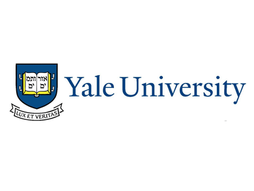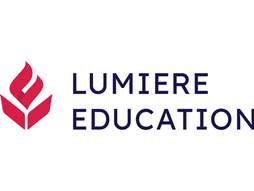Why Networking Matters for College Applications
What Is the Importance of Networking in the College Admission Process?
Networking allows students to distinguish themselves through personal connections and endorsements. By building relationships with students, TAs, professors, and other members of the campus community, applicants can gain insights into what universities are looking for, receive tailored advice on how to improve their applications, and, crucially, obtain referrals that can elevate their applications in the eyes of decision-makers. Networking provides a competitive edge by not only enhancing the applicant's visibility but also by associating them with the credibility and reputation of their connections, thus making their application more memorable and impactful.
Who Should Students Network With?
From least impactful to most impactful, students can network with:
Current students: Learn about campus life, academic experiences, and extracurricular activities. Start with any alumni from your high school.
Alumni: Gather advice on leveraging the university experience for career success and personal growth. Just like with current students, target alumni from your high school.
Teaching assistants: Obtain closer perspectives on faculty members and departmental dynamics. Start with your Lumiere mentor!
Professors in their field of interest: Gain insights into academic programs and research opportunities. Find professors on the Admyssion platform!
Networking: How Students Gather Inside Information about Academics, Department Politics, and Extracurricular Programs
Networking is by no means the first step in any student's college application. But, at Admyssion, we've noticed students who do engage in the practice see improved admission rates. While each student’s journey will be unique, networking allows students to access a well-spring of knowledge.
1. Direct Questions: Engaging members of the campus community in a Q&A can yield insights into the academic rigors of different courses, the teaching philosophies of various faculty members, and the expected outcomes of certain academic paths. Professors can provide firsthand accounts of the curriculum's direction, upcoming changes, or the focus areas of specific courses or programs.
2. Advice on Navigating the Department: Professors and grad students can offer invaluable advice on how to navigate departmental requirements, select courses to best meet academic and career goals, and approach departmental hurdles or administrative processes. This guidance is particularly beneficial in navigating complex bureaucracies or resolving academic issues.
3. Learning about Departmental Changes and Opportunities: Grad students and TAs are usually the first to know about upcoming changes in the curriculum, new faculty hires, departmental shifts in focus, or new programs being developed. Through networking, students can stay informed about these changes, enabling them to make strategic decisions about their education and extracurricular engagements.
4. Professional Development and Extracurricular Programs: Students and professors alike are often involved in or aware of extracurricular programs, professional development workshops, and conferences that can enhance a student’s learning experience and career readiness. Networking with professors can open doors to these opportunities, some of which may not be widely advertised.
5. Mentorship Relationships: By fostering mentorship relationships with professors, students can access tailored advice and guidance based on the professors’ experiences and observations within the department. Such relationships often reveal the unspoken rules of department politics, the dynamics between faculty members, and how these could influence a student’s academic journey.
6. Gaining Recommendations and Referrals: Lastly, networking with professors and grad students can lead to strong letters of recommendation for scholarships, graduate programs, or job applications. Professors can also refer students to colleagues in academia or industry, expanding their professional network and potentially opening up job or research opportunities.
Few Students Develop Meaningful Networks, So Those That Do Stand Out to Application Committees
At many top universities, the college application process is competitive. Many applicants will have demonstrated academic excellence, often in many different ways. However, colleges use more criteria than just intellect alone to shape their incoming class. Many universities, like Harvard, MIT, and Stanford, explicitly try to score students on their “soft skills”, referred to as “EQ” or “personality” scores in application grading scales.
Usually, students demonstrate “personality” through their personal essays and (potentially) alumni interviews. However, networking with members of the campus community (including professors) offers many students a unique differentiator in proving that they have the soft skills required to succeed in college and beyond.
Networking is a critical skill during college, opening up access to research labs, competitive clubs, and job internships. It’s also a critical skill after college, allowing students to succeed in jobs and industry going forward. Selfishly, universities know that consummate networkers will also become strong alumni, participating in community events after graduating and often giving back to the college in the form of monetary donations.
However, very few 17-year-olds are habitual networkers. As a result, those students who prove their mastery of these “soft skills” can often shine in the application committee. After all, there may be hundreds of students with perfect SAT scores, but there will likely only be one student who networked with professors across multiple departments of interest. That latter student represents a far more appealing candidate for most schools.
Networking with Professors is a Series of 5 Repeatable Steps
Many students see networking as a difficult task simply because they lack experience. However, when broken down into steps, networking is trivial.
Step 1: Find a Contact in the Right Area
A STEM student should seek out a STEM contact, and a humanities student should seek out a humanities contact. The trick is to avoid being overly picky in the first round of networking - simply getting a foot in the door is the first critical milestone.
Step 2: Find Someone Willing to Talk
Many teachers are busy. Most will not have the time to talk with a high school student. Getting to a professor or grad student who is willing to talk is often a function of luck, although there are platforms (like Admyssion) that can make the process easier for students.
Step 3: Practice the Conversation
Many high schoolers freeze up or act socially awkward when confronted by a new teacher. The only way to avoid this risk is to practice. Have mock conversations with friends, families, and high school teachers you don’t know that well, and make sure you leave a good first impression.
Step 4: Have the Conversation
Thanks to COVID-19, most professors (and certainly all students) will use video chat technology. This makes it very easy for any student to establish a virtual connection with any professor.
Step 5: Ask for Two More Names
At the end of the conversation, if it goes well, students should ask their contact for one to two warm introductions to colleagues. This allows students to broaden their network and, ideally, work their way towards the people who more closely overlap with their academic interests. From a successful Step 5, Step 2 repeats until the application deadline.
How Should One Highlight Networking in College Applications?
The skill of networking remains valuable throughout life. However, within the college application process, networking conversations shine through in personal and supplemental essays. When asked that dreaded “Why School” question, networkers aren’t limited to details found on a website. Instead, they can craft a personal connection, enriched with specific facts and tidbits, but fundamentally oriented around a person-to-person relationship with a member of the university family.
And personal essays are always more powerful than impersonal ones.
Networking also shines through in student resumes. Students who speak the academic vernacular of a university department can talk about their accomplishments with more detail and precision than any normal high school student could muster. They can tie their existing body of classes and extracurriculars to the programs they plan on engaging with in college. And, most importantly, they can feel confident in their resume, having run it past qualified academics before hitting send on their application.
How Admyssion Can Help
Admyssion provides students with the tools and resources to effectively network with key individuals in the college admission process. Through our platform, students can connect with professors, current students, and alumni, gaining valuable insights and personalized advice. Admyssion's structured approach ensures that students are well-prepared for networking conversations, increasing their chances of building meaningful connections that can enhance their college applications. With Admyssion, students can navigate the complexities of networking with confidence and clarity, setting themselves apart in the competitive college admissions landscape. Discover if Admyssion is right for you at www.admyssion.com.
In Conclusion: Network More!
Most applicants today manage to get into college without networking; it’s not a hard requirement. But over time, as applications become more competitive, as students continually optimize their profiles to gain an edge, the networkers will emerge with a consistent information advantage over those students working in silos. Today, networking might give you a leg up over your competition. Tomorrow, or next year, it might be a tool that stops you from falling behind.
Adi is a graduate of the University of Chicago, where he studied Mathematics and Economics. Adi worked at Goldman Sachs and Accenture Strategy before founding Admyssion. In his spare time, Adi enjoys cooking, chess, and free-climbing buildings.








